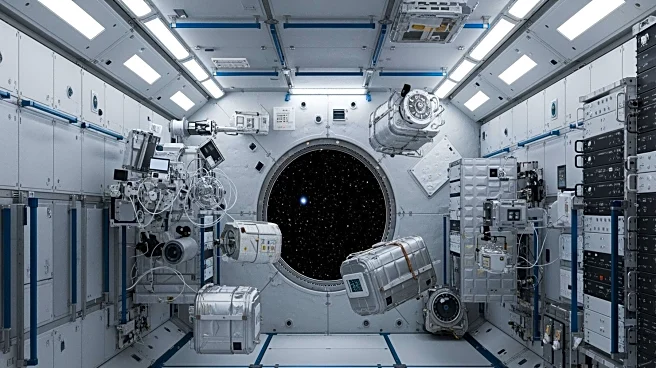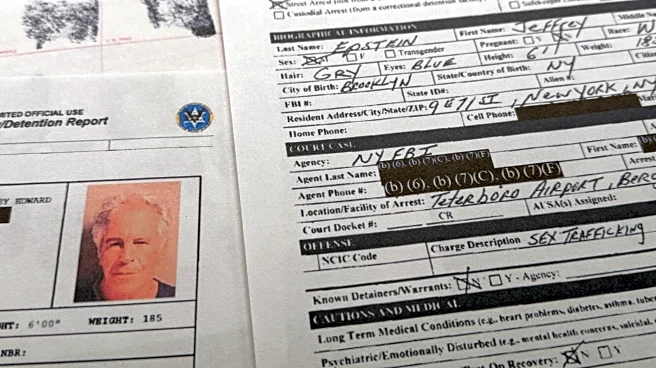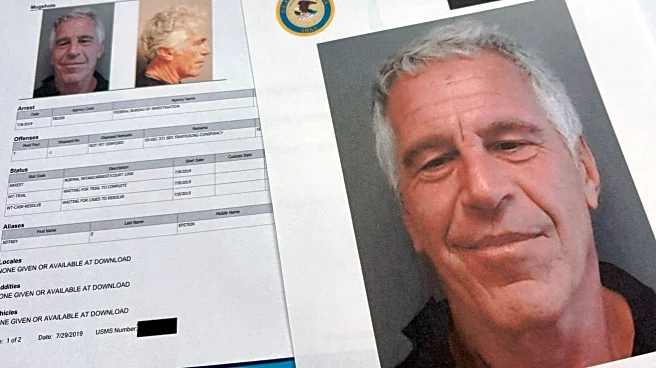What's Happening?
The crew aboard the International Space Station (ISS) is actively engaged in a variety of research activities while preparing for the arrival of new members. The Expedition 73 crew is focusing on health monitoring and fitness evaluations, crucial for maintaining
astronaut health during long-duration missions in microgravity. NASA Flight Engineers Jonny Kim and Zena Cardman are participating in the CIPHER human research study, examining cardiovascular adaptations to space. Kim is undergoing cardiac activity monitoring using the Ultrasound 2 device, while also engaging in aerobic capacity evaluations through exercise. Additionally, NASA Flight Engineer Mike Fincke is conducting fluid physics studies using a fluorescence microscope, which may inform commercial in-space manufacturing techniques. Meanwhile, JAXA's Kimiya Yui is reorganizing cargo and measuring airflow to ensure crew comfort. Roscosmos Commander Sergey Ryzhikov is preparing the Soyuz MS-27 spacecraft for return to Earth, while Flight Engineer Alexey Zubritsky is collecting biological samples for analysis. The station is set to welcome three new crew members, including NASA astronaut Chris Williams, who will launch aboard the Soyuz MS-28 spacecraft from Kazakhstan.
Why It's Important?
The ongoing research and preparations aboard the ISS are vital for advancing scientific knowledge and ensuring the health and safety of astronauts during extended missions. The cardiovascular and fluid physics studies contribute to understanding how the human body adapts to space, which is essential for future long-term missions beyond Earth's orbit. The arrival of new crew members will continue the cycle of research and exploration, supporting NASA's goals of expanding human presence in space. The collaboration between international space agencies, including NASA, JAXA, and Roscosmos, highlights the importance of global cooperation in space exploration. These efforts not only enhance scientific understanding but also pave the way for future missions to the Moon, Mars, and beyond.
What's Next?
The new crew members are scheduled to arrive at the ISS on November 27, 2025, marking the beginning of an eight-month research mission. This mission will involve a range of scientific experiments aimed at furthering knowledge in various fields, including human health, materials science, and environmental monitoring. The returning crew will continue preparations for their journey back to Earth, ensuring all systems are operational and cargo is secured. The ongoing research and international collaboration will continue to drive advancements in space exploration, with potential implications for future missions to Mars and other destinations.

















